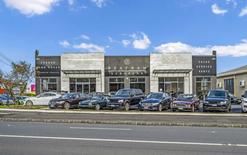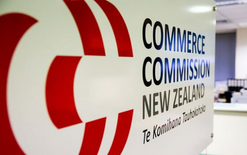Time-of-use charges loom

The government has announced plans to introduce legislation this year to enable time-of-use schemes to be developed in an attempt to help reduce travel times on our busiest roads and boost economic growth.
Simeon Brown, Minister of Transport, says the policy is a priority for the government and a commitment under the National-Act coalition agreement.
Time-of-use schemes are described as a way to improve traffic flows and shorten journey times by charging road users at certain times or locations, depending on how busy the roads are.
The charge encourages some users to change their travel habits, so fewer people are on the roads at the busiest times.
“Congestion is a tax on time and productivity. Faster, more reliable travel times will increase productivity, and lower costs for businesses and their customers,” adds Brown, pictured.
“That is why we are enabling time-of-use schemes to be put in place, [which] will improve network efficiency to increase productivity and enable Kiwis and freight to get where they need to go quickly and safely. It is not about raising revenue.”
Brown adds cabinet has agreed to a legislative framework focused on seven key components that will enable local councils to propose time-of-use schemes on their networks.
The NZTA will lead the design of those schemes in partnership with councils and all schemes will require approval from the government.
“Time-of-use schemes will need to consider the impacts on motorists and businesses that use the roads that fall within the charging areas, as well as the impacts on the wider network,” continues Brown.
“Any money collected through time of use charging will also be required to be invested back into transport infrastructure that benefits Kiwis and businesses living and working in the region where the money was raised.
“Councils will not be able to spend this money on other priorities or pet projects.”
The government says it will prioritise working with Auckland Council on introducing time-of-use schemes, as travel times per kilometre in the city are higher than in comparable locations in Australia.
The coalition expects to introduce a bill to Parliament before the end of the year, which will then go to a select committee in 2025 and New Zealanders will have an opportunity to make submissions on the legislation.





